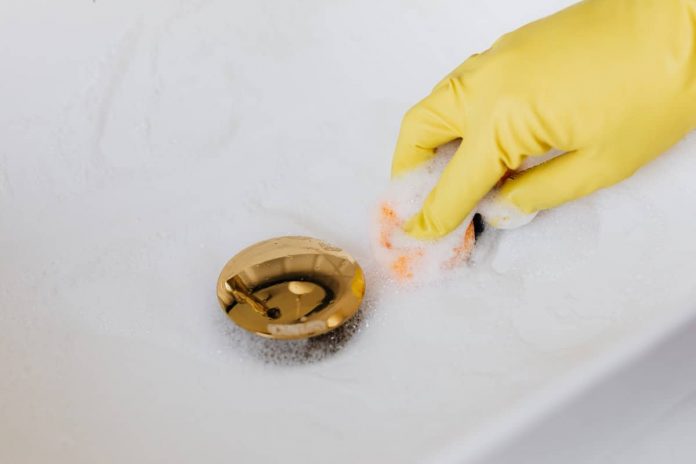Clogged drains are one of the most common home plumbing issues, particularly during the summer seasons when we take baths more often. Hair is one of the main culprits that block normal water flow. Preventing clogged drains will help maintain your plumbing system and keep it in good working order.
Don’t just keep pouring drain cleaners if your pipes are clogging repeatedly. To get to the real root of the problem, a plumbing service will use a camera scope to inspect and identify any cracks or blockages like rotting cast iron, a collapsed pipe or a tree root that has penetrated the plumbing system.
It is, of course, always best to take preventive measures instead of waiting for a problem to occur, so let’s take a look at what you can do to avoid any major plumbing problems from clogged drains.
Drain Clog Preventions
Being aware of what you are putting down the drain is one of the best ways to prevent clogged or sluggish drains. If you want to prevent a clogged drain, be mindful of the following:
Cooking grease can be saved in an old coffee can or cardboard milk container. Once it hardens you can throw it away.
Add coffee grounds to your compost pile or dispose of them in the garbage.
Make sure hair and soap scum don’t build up in the drain opening by covering it with a screen or drain-grate. For more information on the right fixtures, stop by your local plumbing supply store. You may find it helpful to bring a picture of your drainage system with you. The majority of filters and screens can simply be laid in place.
Try this out if your sinks, showers or bathtubs are clogged regularly:
- Get a 1/2 cup of baking soda, 1/2 cup of salt and 2 quarts of boiling water.
- Pour the salt and baking soda into the drain.
- Put the vinegar in and allow the mixture to foam for a minute or two.
- Pour in 2 quarts of boiling water to rinse.
If it doesn’t completely unclog then repeat and let the mixture sit longer before pouring in the boiling water.
Take a Look At What You Dump Down The Drain
- Food, coffee grinds, and grease should always be kept out of kitchen drains.
- All of these things can easily create blockages and prevent water from flowing down the drains.
- Place leftover food and coffee grinds in the trash or compost heap rather than throwing them down the drain.
Most drain clogs are caused by organic matter, such as hair, grease or food. Organic matter can be broken down in your drains by a type of bacteria. By adding the bacteria to your drains, it consumes organic matter, preventing clogs. Bacteria can be purchased in the form of granular or liquid form.
If you do get a clogged drain, a bacterial drain cleaner is an excellent option because they are not corrosive, so they won’t harm pipes.
Make Use Of a Drain Grate Or a Screen
Putting a grate or screen over the drain cap at the lower part of the sink will prevent non-liquid items from entering the drain pipe and becoming stuck.
Remember that most grates or screens will not stop hazardous substances such as oil or grease.
Once you have a grate, be sure to keep it clean. If you don’t clean your grates after they collect a lot of debris, they can become a hygiene hazard. Grates should be removable so they can be used over different sink plugs, and you should only use them when necessary. The majority of hardware stores sell grates at a reasonable price for all kinds of drains.
Trim Nearby Trees
Tree roots can also be a source of pipe obstruction or damage. Keep tree roots away from main pipes or sewage lines. Any trees that are growing near your plumbing lines and pipes should be trimmed or removed.
How To Maintain Clean Drains
- Clean out your sewage line once a week
- Use a bacterial drain cleaner to keep your drains clean
- Clean the drainage lines using hot water
- Use plunger and plumbing snake if necessary
For smaller clogs, drain snaking may be a solution for you. Clumps of hair and food particles commonly clog sinks in the u-shaped trap under the sink or just a few feet farther down the drain. They may be cleared by using a light-gauge, hand-operated drain snake or auger.
Sometimes It’s Not An Easy Fix
Be nice to your drains and you may never experience the troubles associated with clogging. If clogging is a recurring issue, it’s critical to act promptly to minimize more harm. Because clogs or leakage do not improve on their own, delays almost always make the situation worse.
A plumber can help you out with the serious issues facing your plumbing system with prompt action to remove any clogs and an inspection to ensure everything is working as it should.























